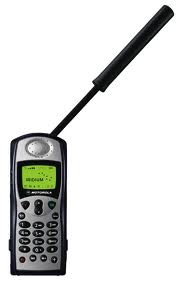Are you considering purchasing a satellite phone? If so, you will quickly learn that it can be more complicated that buying a mobile phone. Below are some points to help compare themajor networks. For starters, if you want global service, you want either Iridium or Inmarsat networks. If you want coverage only in Europe, the Middle East, parts of Africa, or parts of Asia, choose Thuraya for their low rates and great phones. If you want a phone to use in the US only, consider GlobalStar. Any way you look at it, you will make an intial investment of $700-$1,700 and likely have a monthly contract or purchase prepaid service.
- Global coverage
- 66 satellites in a low-earth orbit – 485 miles away

- Motorola handsets
- Large US corporate customers, including US military
- Country codes – 8816, 8817
- Prepaid and postpaid options available
- Iridium to Iridium – $0.75/minute
- Iridium to other satellite phone – $9.72/minute
- SMS outgoing $0.45 (incoming free)
- Global coverage
- 11 geosynchronous satellites – 22,183 miles away
- Country code – 870
- Prepaid and postpaid options available
- SMS outgoing $0.45
- Europe, Middle East, North/Central/East Africa, Central/South Asia coverage
- Handsets are affordable, small, and offer many advanced features
- Country code – 88216
- Thuraya to Thuraya – $0.89/minute
- SMS outgoing $0.49
- Thuraya to other satellite phone – $9.75/minute
- Thuraya to a landline phone$1.49/minute
- Thuraya to a mobile phone $3.99/minute
- North America coverage
- Country codes – 8818, 8819
- Calls cost $1.49/minute
More information:
- Wikipedia: Satellite Phones
- Preferred Communication – Vendor (sales & rentals)
 The NATO phonetic alphabet is a system where key words are used to represent letters and numbers when using two-way radios or other verbal communication. Often with international speakers, accents, stress, and poor communication links, letters such as b, c, d, e, g, p, t, v, z, and the number 3 can sound alike. Assigning a commonly agreed upon word helps avoid confusion when spelling words. This is different from the International Phonetic Alphabet (IPA), which is a method of documenting each sound in language. Below is each letter, its word, the pronunciation, and the IPA spelling.
The NATO phonetic alphabet is a system where key words are used to represent letters and numbers when using two-way radios or other verbal communication. Often with international speakers, accents, stress, and poor communication links, letters such as b, c, d, e, g, p, t, v, z, and the number 3 can sound alike. Assigning a commonly agreed upon word helps avoid confusion when spelling words. This is different from the International Phonetic Alphabet (IPA), which is a method of documenting each sound in language. Below is each letter, its word, the pronunciation, and the IPA spelling.